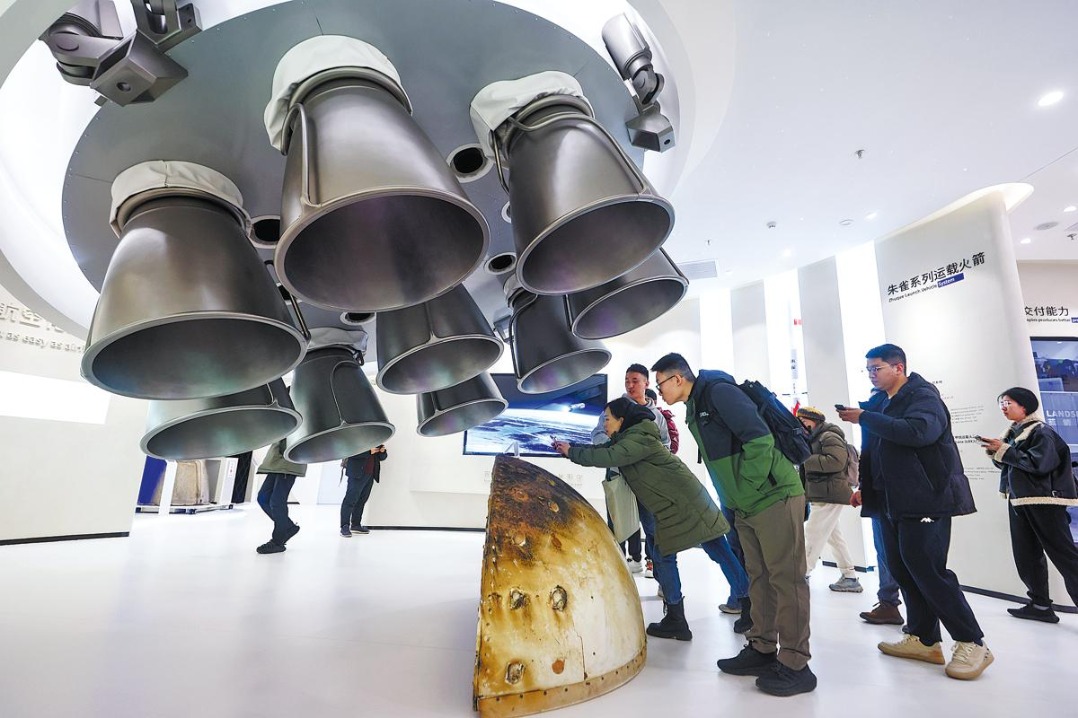Generative AI facilitates smart governance


As a cutting-edge technology, generative artificial intelligence is becoming a game-changer in smart governance. By innovating service models, optimizing governance frameworks and restructuring the decision-making process, generative AI has provided critical support for making governance, government services and decision-making more efficient.
The fact that China will use generative AI to advance "AI Plus" and pursue smart governance has been outlined in the 2025 Government Work Report, heralding a new phase of comprehensively implementing smart governance.
With expanding application scenarios, generative AI is remodeling government services. As the ecosystem for large AI model applications in government work takes shape, generative AI is being applied in fields such as government office work, document drafting, administrative services, smart judiciary, smart Party building, urban management and public safety. By leveraging the interactive features and generative AI demand matching, local governments have significantly improved their service models.
Also, generative AI has enhanced the efficiency and accuracy of government services. For instance, the Hangzhou healthcare security bureau has developed an AI-powered integrated service platform called Xiaozhi, which enables online processing of healthcare security services. Its AI voice assistant handles more than 70 percent of enquiries, with an accuracy rate exceeding 90 percent.
Besides, AI interaction is reshaping government services. By integrating technologies such as natural language processing (NLP), computer vision (CV) and speech processing, AI is able to analyze multilingual and multimodal public requests, automatically generating user demand profiles. Through deep learning of user behavior data, AI systems can dynamically adjust their service strategies.
Moreover, multimodal generative AI is breaking through the limitations of traditional fields. In Futian district of Shenzhen — the country's first to adopt large-scale model in urban area governance — CV and NLP models enable multimodal fusion of text, videos and images, analyzing urban events. This cross-modal data integration is driving the evolution of government services from text interactions to a multidimensional "visual plus voice plus data" service framework.
The rapidly expanding generative AI also significantly enhances cross-departmental collaboration. Multi-modal and large model-based platforms enable real-time data sharing and smart task-matching across departments, improving coordination and facilitating rapid responses to emergencies.
Besides, open consultation platforms powered by generative AI make it more convenient for diverse stakeholders, including businesses and the public, to participate in policy design. For instance, governments can gather input from citizens, companies and experts among others on urban planning through online platforms, then use generative AI to analyze the feedback to work out actionable proposals.
The accelerated development of AI's three foundational pillars — computing power, big data and algorithms — is helping generative AI drive the intelligent transformation of governance capabilities.
Some governments are even establishing self-reliant computing power networks. An apt example of this is Beijing E-Town's AI public computing center, a national infrastructure pilot project that has recently upgraded its capacity to 5,000 petaflops, which is helping expeditiously integrate AI into different industries and facilitate intelligent government decision-making.
Also, several local governments have established dynamically updated government data hubs to dismantle data silos across departments and, with AI's help, streamline decision-making. A prime example is the "Qinqing Online" platform of Hangzhou, which collects real-time data from multiple departments including market regulation, taxation, social security and public security. When processing enterprise subsidy applications, the system automatically cross-references and completes the processing within a few seconds.
With better algorithms, some industry-specific large models tailored for government use have significantly enhanced the performance of technologies. The first regional AI forecasting model "Zhiji", built on Huawei Cloud's Pangu-Weather Model and equipped with high-quality regional meteorological datasets, has improved weather forecast resolution from 25 kilometers to 3 km, transforming complex meteorological data patterns into accurately predictable weather changes.
It is fair to say that the continuous advancement of digital infrastructure is driving government decision-making from experience-driven to digitalized and smart decision-making, laying a solid foundation for the modernization of governance. The deepening application of AI technologies, exemplified by Deep-Seek, is also reshaping governance frameworks and service models with smarter policies, more efficient governance, and more people-centric services.
Yet the technological empowerment comes with multifaceted risks, including potential misuse of technology, data security vulnerabilities and algorithmic black boxes, which should be handled properly. Governance in China is now undergoing a digital transformation. While generative AI helps expedite the modernization of governance, it demands a careful balance between innovation and security. Therefore, there is a need to build an inclusive yet prudent ecosystem for intelligent governance, so as to elevate generative AI from a mere technological tool to a strategic pivot for systemic reform, empowering the modernization of China's governance system and capabilities.
The author is vice-dean of the School of Smart Governance, Renmin University of China, and a research fellow at the National Academy of Development and Strategy at the same university. The views don't necessarily reflect those of China Daily.
If you have a specific expertise, or would like to share your thought about our stories, then send us your writings at opinion@chinadaily.com.cn, and comment@chinadaily.com.cn.


































